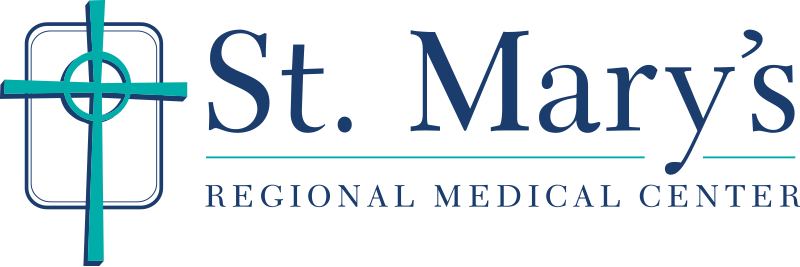Sleep apnea is a disorder that causes brief interruptions in breathing – sometimes hundreds during the night. Loud snoring and gasping for breath are two common symptoms. Diagnosis and treatment of sleep apnea are a major focus at St. Mary’s Sleep Disorders Center.
Signs that suggest you may need a sleep study
- Sleepiness during the day or when working
- Snoring loud enough to keep someone in your home awake
- Memory problems that interfere with activities
- Headaches from not getting a good night’s sleep
Dangers of Sleep Apnea
Normally, when a person is sleeping, the muscles in the throat relax. In obstructive sleep apnea patients, the airways close up or become blocked. Oxygen intake is decreased and strain is put on the heart. This can lead to serious cardiac conditions such as coronary heart disease, irregular heartbeats (arrhythmias) and heart failure. Jeffrey Young, Sleep Operations Coordinator, says increasing awareness can make all the difference. “The importance of identifying sleep apnea is to diagnose and treat the underlying conditions, which can range from cardiovascular disease, high blood pressure
and diabetes to obesity,” he says. “In most cases, left untreated, the conditions will develop further.”
Identifying Problems
Often doctors prescribe a sleep study if sleep apnea is suspected. This is a diagnostic test that is conducted overnight. Patients sleep in the Sleep Lab’s quiet, comfortable hotel-like setting. Trained clinicians monitor and record the patient’s sleep patterns, heart rate, breathing, muscle movement, brain waves and oxygen levels. If sleep study results are positive, a treatment plan is developed. For mild cases, lifestyle changes may be recommended. The most widely used treatment for moderate to severe sleep apnea is Continuous Positive Airway Pressure (CPAP) therapy. Steady air pressure, delivered via a mouth or nosepiece, keeps the patient’s airways open while sleeping. There are also more than 100 oral appliances available to treat obstructive sleep apnea.
Encouraging Screenings
“Many people don’t know to get tested for sleep apnea, since symptoms can be vague,” says Emily Cooper, MD, Family Medicine Physician. Snoring is one sign of sleep apnea, but requires someone else to hear it. Another symptom may be daytime sleepiness, but that can be attributed to a wide variety of causes. Kent Jordan, Director of Respiratory, Stress Testing and the Sleep Lab at St. Mary’s Sleep Disorders Center, says this lack of understanding can complicate diagnosis. “There’s no pain prompting patients to see their doctors, so the signs are easy to ignore,” he says. “If someone is having problems sleeping, a sleep study is an excellent first step toward a better quality of life.”


